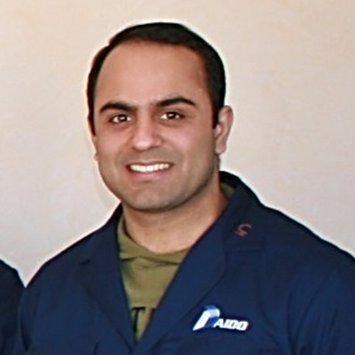 Dr Mayank Anand is a Research Tribologist in the R&D Department of Daido Metal Co. Ltd. He completed his PhD at Bournemouth University before making the transition to a researcher in industry.
Dr Mayank Anand is a Research Tribologist in the R&D Department of Daido Metal Co. Ltd. He completed his PhD at Bournemouth University before making the transition to a researcher in industry.
How you got your first job
After completing my PhD in the field of Tribology at Bournemouth University, I joined the R&D Department of Daido Metal Co. Ltd (UK) as a Research Tribologist. At Daido Metal my work involves developing new experimental methodologies and test rigs alongside using commercially available state-of-the-art equipment to evaluate the performance of bearing materials for various internal combustion engine applications. Currently I am leading the Tribology research team and involved in a number of research projects both internally and externally working closely with universities and research organizations. This role is very much aligned with my PhD degree at BU where I conducted an experimental research which involved the modification of test rig to simulate specific test environments for investigating the performance of engine lubricant additives.
What made you to choose a career in industry
After the completion of my undergraduate degree in Mechanical Engineering at University of Strathcyde (UK) I worked at General Electric – Aviation (UK) within technical and management based roles. The experience at GE helped me realize the benefits of working in industry through the application of engineering basics learned at university alongside enhancing my professional skills. My curiosity to know more urged me to pursue a research degree in Mechanical Engineering (Tribology) at BU. Indeed, the exposure to research fundamentals broadened my horizon to understand and solve engineering problems. However, choosing to pursue a career in industry after PhD was natural and proved beneficial. As a Research Tribologist at Daido Metal, I am applying the knowledge gained during PhD to a number of projects and learning additional skills by working in liaison with other research and engineering teams.
Training and development that helped
As part of my PhD, I had the opportunity to work for 6 months at the Royal National Lifeboat institution (RNLI) who co-sponsored my PhD project. The direct interaction with the engineering and maintenance teams at the RNLI greatly helped to build up new technical skills and professional ability to work with many external sub-contractors, suppliers and also technical experts from BP Castrol Technology Centre (UK). PGR development funding and Santander Award helped me in travelling abroad and conducting part of my research with experts at the University of Oviedo (Spain) and present the research findings at the international conferences. I attended the Post Graduate Development workshops arranged by BU Graduate School to develop much needed research skills. The support I received from my supervisory team was immense and helped a lot to gain exposure to the research community through participation and dissemination of my work at a number of national and international scientific conferences. Therefore, I would definitely recommend students to actively participate in research both at BU and outside. It helps getting new ideas and feedback on your research alongside providing the opportunity for networking with experts from industry and academia.
Read more about planning a research career outside of higher education here.











 REF Code of Practice consultation is open!
REF Code of Practice consultation is open! BU Leads AI-Driven Work Package in EU Horizon SUSHEAS Project
BU Leads AI-Driven Work Package in EU Horizon SUSHEAS Project Evidence Synthesis Centre open at Kathmandu University
Evidence Synthesis Centre open at Kathmandu University Expand Your Impact: Collaboration and Networking Workshops for Researchers
Expand Your Impact: Collaboration and Networking Workshops for Researchers ECR Funding Open Call: Research Culture & Community Grant – Apply now
ECR Funding Open Call: Research Culture & Community Grant – Apply now ECR Funding Open Call: Research Culture & Community Grant – Application Deadline Friday 12 December
ECR Funding Open Call: Research Culture & Community Grant – Application Deadline Friday 12 December MSCA Postdoctoral Fellowships 2025 Call
MSCA Postdoctoral Fellowships 2025 Call ERC Advanced Grant 2025 Webinar
ERC Advanced Grant 2025 Webinar Update on UKRO services
Update on UKRO services European research project exploring use of ‘virtual twins’ to better manage metabolic associated fatty liver disease
European research project exploring use of ‘virtual twins’ to better manage metabolic associated fatty liver disease